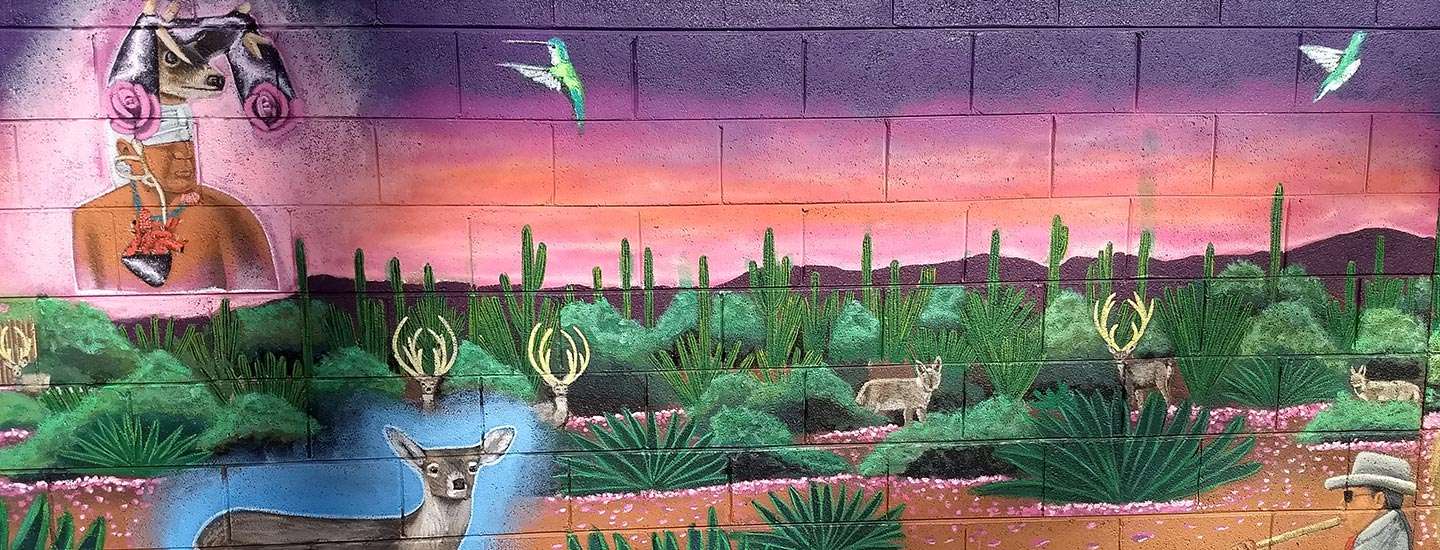The depth of our spirituality reflects the amount of consciousness we can focus into living. Humans distill our experiences through the instrument of language. Like a guitar, a melody of notes unveils a feeling, and a complimentary series of chords reveals a story. When we focus our minds into the details, we broaden the scope of the story. It’s a conundrum: Get small to go big. Let’s explore our definition of God and spirit to be clear about our language.
Contents
What is Spirit?
If consciousness is the medium and pure potentiality of mind by which all that is knowable fashions itself, spirit would be the movement or force that brings consciousness or mind into form.
Spirit and mind make up our physical existence. Spirit is the life force itself, the presence of life in our bodies, right down to the DNA that makes up our genome. Mind is the genome itself, the intelligence which guides each stem cell to its purpose. This intelligence runs through everything via the medium of consciousness. Every plant, tree, animal, quasar, and asteroid has a vibratory nature that positions itself within the fabric of creation and the medium of consciousness, driven by the creative force of spirit.
Can I Be Spiritual Without God?
The simple answer to this is “yes, you can.” In What Does it Mean to be Spiritual?, I explain that spirit is the animating force within all life. To exercise that animating force is to be spiritual. This means that simply acknowledging the creative force within you is itself an act of spirituality. What you choose to do with it is up to you. You can honor God if that feels right for you and if you don’t believe in God, that’s fine too.
Spirituality and Religion
Most people grew up with a religion in their household and many encountered dogma that didn’t feel right for them. Because of this, many felt confused about their relationship with God and with the principles of the religion itself. Many if not most of these people will identify as “spiritual” rather than “religious.” I comment more on the vernacular differences in The Difference Between Religious and Spiritual.
When you approach these people with the concept of God, their definition is confused between the doctrine they were taught from, and their own essential nature. Essential Nature is something I talk about more in the Living a Sacred Life Online Course. The doctrine of most faiths personifies God with qualities similar to humans, e.g., God’s wrath, an angry God, God’s judgement, etc. The personification of God supports the idea of a creator as opposed to a creation. This is useful when you need the conceptual support of something that loves you in a world where unconditional love is absent.
Personal Relationship With God
As the brain develops further and the emotional wounds are healed, a more personal relationship with God will be more desired. We’ll talk more about brain development later. This personal relationship may go beyond the dogma of any organized religion. You may find yourself unmooring yourself and setting out to sea as part of your growing spirituality. The definition of God as a personification with special powers will change.
God as a Force
Some teachings refer to God as a force. The idea of Brahman in the Hindu Vedas is an all supreme force or creative principal. If you interchange Brahman for God, you might consider that God is within you as a creative force from which you are made. This force has no human like qualities. It is primordial and exists in all things and all non-things. It is… just as Consciousness is. The animating presence from this creative force is spirit. To practice at utilizing this spirit in your everyday life is an act of spirituality which means that being spiritual is not about whether you believe in God. It’s really about how you define God and if you choose that definition to describe your experience of creation within you. This means the experience really lies in language.
Spirit and God
I’ve never felt right when people talk about God in a religious sense. For me, the idea of a supreme being that has human like attributes just doesn’t sit well. Note that this is my belief, and I’m happy for it to change should I encounter something different that shifts this belief. Also note that this belief has changed over time since I was a kid attending Sunday school.
Many people still have a tendency to use the word God to mean a greater power even when they’re not religious. For example, people in recovery do this. I believe in a supreme force of creation that runs through all corporeal and non-corporeal existence. I call this the Creative Force of the Universe or CFU. Others have similar names like Source, The All, etc. To me, creation is the force that drives all of our perceived reality. We don’t or can’t perceive with our physical senses even though it’s all around and inside all the time. The energy that flows from and through it is experienced by us as love.
Spiritual and Scientific Arrogance
Considering the vastness of creation, galaxies upon galaxies, universes upon universes, the idea of some supreme being having concern over our little corner of the Milky Way is one of the more arrogant things that humanity has come up with. Our ability to reason is a fairly recent development in the last 40,000 years or so. It stands to reason (pun intended) that we don’t know the slightest thing about the universe in spite of the self congratulatory thinkers of the last couple hundred years developing the scientific method.
This is where I have to root for the underdog, namely the great mystery, to beat the pants off the scientists and religious elite. I say this, not because I don’t like science or religion, but because I find it very difficult to listen to anyone who believes they can tell me how it is, as in there being one absolute truth. Thus, to me the biggest problem with spirituality and science is blinded certainty.
God Is Within Us
If I remove the idea of God from the equation, I would need to replace it with something. If there is no personified being to call God, then it may look like I’m trying to remove all of the qualities that people attempt to develop that are “Godly.” What I’m really after is impressing the idea that the essence or energy that people ascribe to God is really in themselves. This isn’t a new idea as Jesus talked about it in the bible. The Vedas and Upanishads talk about it extensively.
Brain Development
Our brains haven’t developed enough to handle too much abstract information from outside ourselves. We rely on what we can absorb via our senses and often don’t even find it necessary to move beyond them because it’s not practical and won’t help to keep us alive. I want to say that all humans have an inherent desire for meaning but there are some in which I’m skeptical this is true. I think it’s safe to say that everyone has some need for self fulfillment. This could be to love or be loved, to be better or successful, to excel, or simply to be recognized. For some it could be to sit around and relax as much as possible. Something drives and motivates each person whether it appears as action or inaction.
Having a more developed brain doesn’t mean building better gizmos. Hence, I’m not referring to understanding the bare components of the universe either. A more developed brain means being able to solve the problems of our egoic selves. Somewhere along the way, it was decided that some people just aren’t worthwhile so they either don’t deserve freedom or don’t deserve equality. That wasn’t an agreed upon decision. It was a development that became part of the genetic material that our building blocks are made from, and it happened over the course of generations.
Homosapiens
In Sapiens, Yuval Noah Harari talks about the transition from Neanderthal to Homosapien Sapiens. There’s really no idea how the jump was made, but Homosapiens developed the ability to socialize and group think. This coordination effort led to the rapid demise of the Neanderthals whose brain development had not included this group coordinating capacity. They were able to develop tools with which to work and did have methods of hunting and surviving that had kept the species alive for thousands of years. Therefore, Sapiens stood on the shoulders of the Neanderthals. In a short period of time as in hundreds of years, they disappeared. This in my opinion could be where this attitude of superiority has its origin. One “species” is better than another species; or, my “culture” is better than your culture.
The Problem of Superiority
This problem of not being able to share still plagues us today. Those that have tend to feel inherently better and superior to those that don’t. The interesting thing is that those that don’t have are often the first to give what they have to those that need it. Those that have the most are usually the most paranoid and unhappy because they have too much to lose. Certainly, when you have nothing to lose, you have the most options.
In the movie, “Wall Street”, Gordon Gekko played by Michael Douglas has a wonderful self congratulating speech that sums up the sentiment of this long standing brain development perfectly:
“The point is, ladies and gentleman, that greed, for lack of a better word, is good. Greed is right, greed works. Greed clarifies, cuts through, and captures the essence of the evolutionary spirit. Greed, in all of its forms; greed for life, for money, for love, knowledge has marked the upward surge of mankind.”
There’s some logic to this, that this “greed” spurs innovation, growth, evolution, etc. However, it neglects one key thing. It has (to my knowledge) never produced an inner peace that was able to stop long enough to contemplate the void it was trying to fill.
The Purpose of Life is to Live It
Alan Watts said somewhere that the purpose of life is to live it. In other words, we can bring more living into life by examining our motivations, releasing ourselves from old beliefs, and moving our consciousness forward. We must recognize that our greatest limitation is the negentropic conclusion of knowing.
I would hope that humanity at some point would evolve beyond its need for what it has not, and pay attention to what it has. We have the CFU, God, or spirit within us. Therefore, there has never been a lack of anything other than our own understanding. Our responsibility is to expand our own minds by questioning our “reality.” To live more fully, we can share each other’s experiences and deepen the capacity for awareness. This can be done with one of the greatest tools available to us, Meditation.


Love Actualizing is a simple yet powerful meditation to raise your personal vibration to a higher frequency, especially before doing other work.
In Conclusion
In What Does it Mean to Be Spiritual?, I talk about spiritual responsibility for humanity. We need to communicate with each other by both speaking and listening. We must lose our superiority, and see the spirit in all beings. It would help if all religions, spiritual, and scientific traditions held the principle that all spiritual paths are an interpretation in language of the recognition of spirit or life in all of us. In conclusion, Spirituality can exist without God if the notion of God is limitless, just like the creative flow of change that exists all around and through us.






Responses